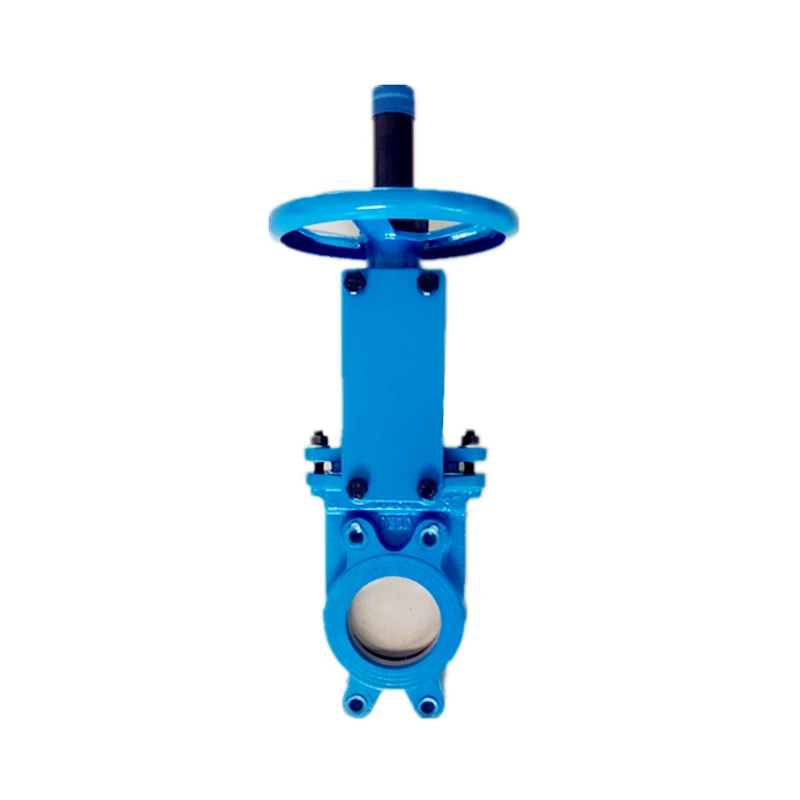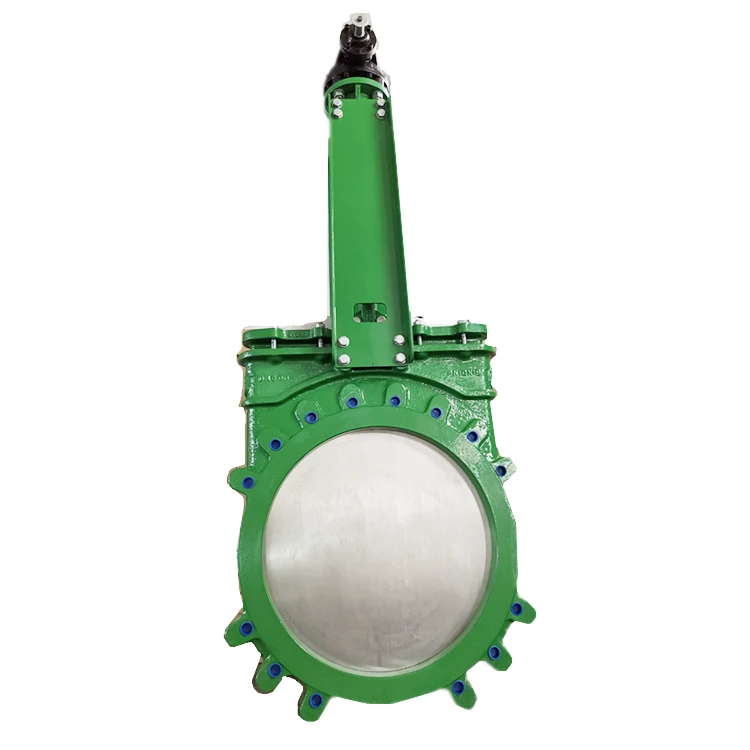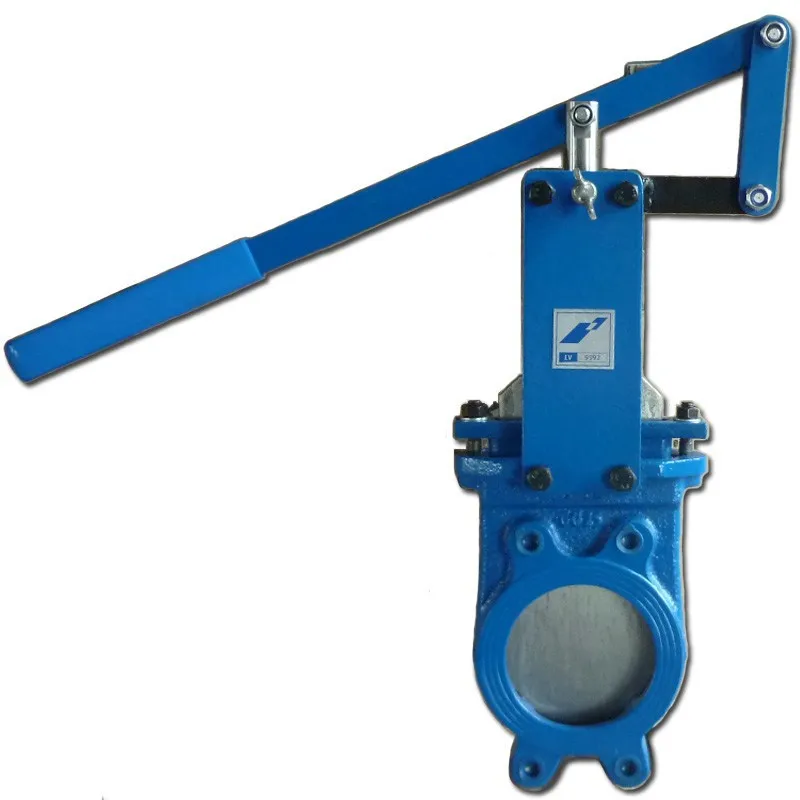Innovations in Knife Gate Valves: From Polyurethane to PVC Solutions
Key Takeaways
The evolution of knife gate valves has led to numerous innovations that greatly enhance their utility across various industries. Polyurethane knife gate valves offer exceptional durability and resistance to wear, making them ideal for demanding applications that require rigorous performance. These valves can handle abrasive materials with ease, ensuring a longer lifespan and reduced maintenance costs. The flexibility of PTFE-lined knife gate valves allows them to perform effectively in harsh environments, showcasing remarkable chemical resistance. This characteristic is crucial in industries where corrosive substances are prevalent, as it minimizes the risk of leaks and system failures. Additionally, PVC knife gate valves, including models from Valterra, are recognized for their versatility and cost-effectiveness. These lightweight solutions serve well in environments where weight constraints are significant and provide an economical alternative without sacrificing performance. The comparative analysis of Praher and Reiss knife gate valve technologies reveals varying design philosophies, tailoring functionality to meet specific operational needs across different sectors. Each brand brings unique advantages, adding richness to the choices available for engineers seeking optimal solutions for specific applications.
Innovations in Polyurethane Knife Gate Valves: Performance and Applications
The polyurethane knife gate valve stands out as a remarkable innovation due to its ability to operate effectively in various challenging environments. This type of valve utilizes polyurethane materials, providing enhanced durability and resistance against wear, which is critical in industrial applications where abrasive materials are present. The unique properties of polyurethane contribute to a longer service life compared to traditional materials, making it an economical choice in the long run.
A key feature of the polyurethane knife gate valve is its lightweight design coupled with high-strength performance. This design minimizes the effort required for operation while maintaining robust functionality. Industries such as wastewater treatment, mining, and pulp and paper benefit significantly from these advantages, allowing for efficient flow control without compromising structural integrity.
The integration of advanced sealing technologies within these valves ensures minimal leakage, thereby optimizing operational efficiency. The ease of installation further enhances its practicality across various applications, reducing downtime during maintenance or replacement activities.
Parameter Value
Pressure Rating Up to 150 psi
Temperature Range -40°F to 250°F
Valve Size Availability 2" to 24"
Body Material Polyurethane
“Opt for polyurethane knife gate valves when planning for long-term durability and operational efficiency in demanding environments.”
By capitalizing on the strengths of polyurethane, manufacturers continue to refine valve design and functionality, paving the way for innovative solutions that address evolving industry needs. The focus on performance metrics reflects an industry commitment to enhancing reliability while ensuring cost-effectiveness across operations.
The Advantages of PTFE-Lined Knife Gate Valves in Harsh Environments
PTFE-lined knife gate valves represent a remarkable advancement in valve technology, particularly designed to withstand severe conditions commonly encountered in various industries. The use of polysulfide coatings enhances chemical resistance, allowing these valves to function effectively in environments laden with caustic substances, corrosive gases, and extreme temperatures. The unique characteristics of PTFE provide a low friction surface, enabling smooth operation and reducing wear over time. This facilitates greater durability and reliability, crucial for minimizing downtime in industrial applications.
Furthermore, the PTFE lining offers exceptional sealing performance, effectively preventing leaks that can lead to hazardous situations. The ability to maintain integrity under pressure makes these valves ideal for processes involving slurries or particulates that might otherwise damage traditional valve materials. Maintenance becomes less intensive due to the resistance against corrosion and abrasion. Enhanced performance is crucial when operating equipment in chemical processing, mining, or wastewater treatment facilities.
In summary, the implementation of PTFE-lined knife gate valves provides substantial benefits that facilitate greater efficiency, safety, and cost savings across various demanding applications.
Exploring PVC Knife Gate Valves: Versatility and Cost-Effectiveness
PVC knife gate valves represent a significant advancement in valve technology, particularly valued for their versatility and cost-effectiveness. These valves are ideal for applications in various industries, including water treatment, chemical processing, and bulk material handling. With a design that allows for efficient regulation of flow in systems where space constraints exist, PVC knife gate valves provide a reliable solution for on-off flow control.
The lightweight nature of PVC makes installation easier and reduces the overall strain on piping systems. Additionally, their resistance to corrosion offers an advantage over traditional metal valves when used in aggressive environments. Maintenance requirements are minimal; the smooth surface of PVC prevents buildup of sediments, thereby reducing the frequency and cost associated with cleaning.
In terms of performance, PVC knife gate valves handle large volumes with ease due to their wide-open design. This characteristic minimizes pressure drops across the valve compared to other valve types. Furthermore, they can effectively manage solids in suspension within liquids, which is crucial for applications such as wastewater treatment.
The affordability of PVC knife gate valves allows businesses to reduce operational costs without sacrificing quality or performance. This combination of economic benefits, ease of use, and adaptability makes them an attractive choice for engineers seeking effective solutions for modern fluid control challenges.
Comparative Overview of Praher and Reiss Knife Gate Valve Technologies
The Praher and Reiss brands have established themselves as leaders in the production of knife gate valves, each offering unique technological advantages that cater to diverse industrial applications. Praher knife gate valves are renowned for their innovative designs which often incorporate polyurethane materials, enhancing durability and performance in abrasive environments. This ensures a reliable seal and minimizes the risk of leakage, which is critical for operations involving aggressive fluids. On the other hand, Reiss knife gate valves stand out due to their versatility across different media types. They typically utilize a robust construction that allows for effective handling of slurries and viscous materials, making them suitable for sectors such as wastewater treatment and mining. Both manufacturers have embraced the use of PTFE linings in some models, further improving chemical resistance. While Praher's focus leans towards advanced materials engineering, Reiss emphasizes practicality without compromising on quality. Users should consider specific operational requirements when choosing between these two reliable options as they each present striking benefits tailored to various industrial needs.
Conclusion
The landscape of knife gate valves has evolved significantly, driven by innovations in materials and design. The introduction of polyurethane knife gate valves demonstrates enhanced durability and performance in various applications, especially in industries requiring robust solutions under challenging conditions. Their resistance to wear and tear makes them suitable for use in abrasive environments. Additionally, PTFE-lined knife gate valves provide exceptional chemical resistance, ensuring reliability in harsh substances without compromising safety or performance. Their ability to withstand aggressive media allows for broader applications across different sectors.
Furthermore, PVC knife gate valves offer an economical alternative, combining versatility and lightweight construction with ease of installation. They serve as effective solutions for both liquid and dry material handling, making them popular choices in water treatment facilities and agricultural sectors. The interplay between Praher and Reiss knife gate valves showcases advancements in technology that cater to diverse operational demands. Understanding the unique benefits these innovations present allows for informed decisions tailored to specific industrial needs. These developments underscore the importance of selecting appropriate valve types to enhance operational efficiency and reliability across various systems.
FAQs
What is a polyurethane knife gate valve?
A polyurethane knife gate valve is designed to control the flow of liquids and slurries in industrial applications. Its wear-resistant nature enhances durability, making it suitable for tough environments.
What are the benefits of using PTFE-lined knife gate valves?
The PTFE-lined knife gate valve offers resistance to corrosive substances and high temperatures. This makes it ideal for industries where chemical exposure is common, prolonging the life of the valve.
What applications are suited for PVC knife gate valves?
PVC knife gate valves, such as those from Valterra, are lightweight and resistant to various chemicals. These properties make them suitable for water treatment, irrigation, and other applications requiring cost-effective solutions.
How do Praher and Reiss compare regarding knife gate valve technology?
Praher knife gate valves emphasize compact design and reliability under high pressures. In contrast, Reiss knife gate valves focus on versatility and ease of maintenance, making both brands reliable in their respective domains.
What industries commonly utilize knife gate valves?
Industries such as wastewater treatment, mining, power generation, and chemical processing frequently use knife gate valves, mainly due to their efficiency in handling solid and slurry materials.
Can knife gate valves be automated?
Yes, many modern knife gate valves, particularly those made from materials like polyurethane or PVC, can be automated to enhance operational efficiency in processes requiring precise flow control.




